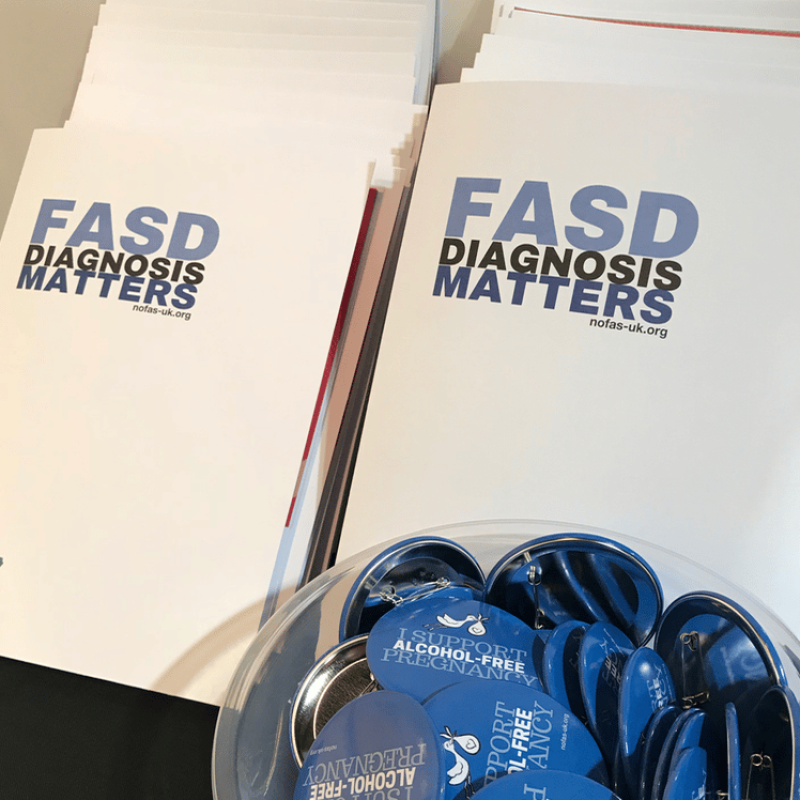
For any FASD diagnosis you may be asked for the following:

Ask the GP to refer you to a paediatrician. The paediatrician may conduct an array CHG blood test to rule out any genetic issues.
(Note: a referral to a geneticist is not needed at this point and can delay things. If something shows positive, the referral can be made at that point. Even if there is a positive genetic test, this does not rule out that there may also be FASD.)
To get a full picture, assessment should ideally include:
Sadly, it can be more challenging for adults to get a diagnosis. Discuss your concerns with your GP. Explain that you are concerned you might have FASD. Bring any proof you have (as above) and ask the GP to refer for a neuropsychological assessment and a genetics test. Even if it doesn’t lead to an FASD diagnosis, this assessment can identify any problems with processing and will be useful in supporting any claims for benefits or additional support at work. See below for clinics that might be able to help if local services aren’t available.
These are the types of proof that can be provided re an alcohol-exposed pregnancy. Sometimes a review of the maternal records with a fresh set of eyes by the professionals can yield the proof needed.
This is from Scottish SIGN guidelines that have been accepted by NICE as the basis for the upcoming NICE Quality Standard on FASD:
Confirmation of PAE requires documentation that the biological mother consumed alcohol during the index pregnancy based on:
From: https://www.sign.ac.uk/our-guidelines/children-and-young-people-exposed-prenatally-to-alcohol/
NOTE: a diagnosis of FASD is possible without confirmation of alcohol-exposed pregnancy in the <10% of instances when three sentinel facial features are present. The only time when FASD can’t be considered is when prenatal alcohol is confirmed absent. There doesn’t absolutely have to be a positive intake history to make the diagnosis. It’s possible a practitioner could still feel they had a circumstantial history, or they could put the patient into the ‘at risk’ of FASD group.
According to SIGN 156, “a diagnosis/ descriptor of FASD is made only when there is evidence of pervasive and long-standing brain dysfunction, which is defined by severe impairment…in three or more of the following neurodevelopmental areas of assessment”:
SIGN 156 states: “The diagnostic /descriptive criteria for FASD are the same for adults as for younger individuals”
Increasingly clinical commissioning groups are developing diagnostic pathways that allow people affected by FASD to have their needs assessed. The situation is patchy but is improving but often families & individuals still have to seek exceptional funding from NHS panels or fund the assessment privately.